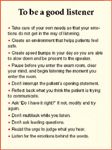- Revenue Cycle Management
- COVID-19
- Reimbursement
- Diabetes Awareness Month
- Risk Management
- Patient Retention
- Staffing
- Medical Economics® 100th Anniversary
- Coding and documentation
- Business of Endocrinology
- Telehealth
- Physicians Financial News
- Cybersecurity
- Cardiovascular Clinical Consult
- Locum Tenens, brought to you by LocumLife®
- Weight Management
- Business of Women's Health
- Practice Efficiency
- Finance and Wealth
- EHRs
- Remote Patient Monitoring
- Sponsored Webinars
- Medical Technology
- Billing and collections
- Acute Pain Management
- Exclusive Content
- Value-based Care
- Business of Pediatrics
- Concierge Medicine 2.0 by Castle Connolly Private Health Partners
- Practice Growth
- Concierge Medicine
- Business of Cardiology
- Implementing the Topcon Ocular Telehealth Platform
- Malpractice
- Influenza
- Sexual Health
- Chronic Conditions
- Technology
- Legal and Policy
- Money
- Opinion
- Vaccines
- Practice Management
- Patient Relations
- Careers
Listen up: It's a practice builder
The physician who really hears what his patients are saying may wind up learning a lot more than he expects.

As everyone was eating and socializing, the behavioral psychologist coordinating the event signaled me to begin. I shook my head. Ten minutes later, the chief resident looked up from his plate and inquired, "Aren't we having a talk today?"
"I thought I would give you time to eat in peace," I explained.
"What do I do now?" I thought. This experiment has failed.
Just then his brow furrowed, the smirk replaced by a frown. "You know, my father was an internist. He rushed in late for meals, grabbed something to eat, and was off on some errand. He was always doing two things at once and I was 14 before he remembered my birthday. Are you trying to teach us something?"
Indeed I was. By allowing the participants to chat and eat without stress, I offered them a contrast to their normal hectic, multitasking day. Perhaps this might yield some insight.
I wanted to draw a parallel between my effort to speak to physicians who were eating lunch, and patients trying to communicate with physicians distracted by practice issues. As a presenter, I prefer 20 minutes of undivided attention to 50 minutes of partial listening. "Could it be," I asked the group, "that patients are really asking for just a few minutes of attentive listening?"
I had good reason to ask. As a goal-oriented family physician, I had rushed my way through 30 years of practice. I was successful financially, but distressed by patients who inexplicably left my practice, employees who quit suddenly, and personal relationships that dissolved despite my best intentions. Dissatisfied, I retrained in Gestalt psychotherapy and chaplaincy and found new dimensions in communication and awareness. Many profound concepts emerged as I unlearned the myths about listening which I was taught as a medical student. Now, I mentor physicians on communication and self care skills.
The following are some listening myths that continue in the medical environment:
Listening is a luxury. In other words, if there isn't enough time, you can skip listening. Sure, but only at your peril. Not only do you run the risk of missing clinically significant anxiety and depression, you invite patient dissatisfaction and anger-a frequent trigger for litigation. Consider, too, the impact on your well-being when you are deprived of the benefits of positive feedback from patients and others.
Listening is intuitive. On the contrary, much about listening is counterintuitive-particularly to physicians accustomed to interrupting and attempting to fix problems. Listening professionally, trying to connect with underlying emotions rather than just words, is a highly complex task, one that is both therapeutic and diagnostic. It requires training and practice.
Listening is an auditory experience. Since so much communication is nonverbal-expressed through body language, facial expression, and eye contact, all of your senses are utilized as you search for clues. This is an important concept since words are often used to obscure and defend against painful feelings. You may miss a great deal of what your patient is communicating if you concentrate solely on your patient's speech.
Listening is passive. Gathering clues, processing information, deciding when and how to respond to the patient are all actions. Sometimes a silent, supportive presence is the most appropriate active response to a patient's painful situation.
